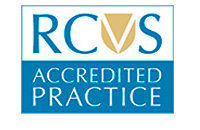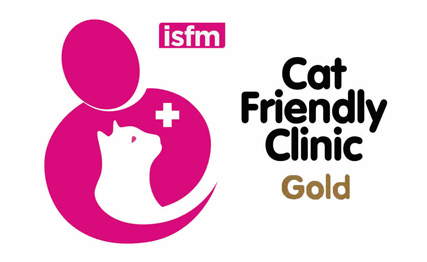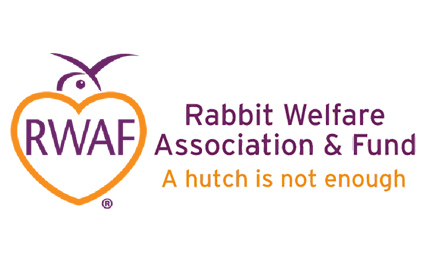24 hour contact: 020 7387 8134
Preparing your pet for a visit to our practice
Visiting the vet can be stressful just from the perspective of worrying about what may happen. Here are our top tips about coming to visit the vet with your pet so that your vet visit is as stress-free as possible.
Schedule your vet appointment
By booking your appointment in advance we can ensure that we allocate the relevant space in the diary for you. We want to avoid you having an unnecessary wait or not being able to see you and your pet.
Make sure that let us know the reason behind your visit
Whether you are coming in for a regular check-up or a medical concern – please be clear about it when you talk to the receptionist. If you have something specific you want to discuss with the vet in addition to regular shots or examinations, let the receptionist know so you can get the proper amount of time.
Help us to ensure your pet is seeing the right vet
Our vet team often specialise in particular ailments or treatments. We also have a dedicated exotic pet service. Our reception team can help to ensure that you see the best-qualified vet for your pet’s condition so please feel free to ask if we have a specialist in the pet or condition you need help with.
Bring along any pet information or items we may need
Please check with our reception team if there is anything you should do ahead of the appointment. Give a brief explanation of the problem and ask if you need to bring a urine or stool sample, not feed your pet, or do anything else in particular. If you are registering with us and having your first appointment, please bring any previous medical documentation (such as dates of vaccinations) with you if available and the contact details of your previous vet if applicable.
If you are used to grooming and handling your pet – then you are in the best place to spot anything early on that may require vet attention. Equally, if your pet is used to being handled – they are more likely to feel at ease when they have their examination.
Make notes about your pet’s condition
If you feel that something is bothering your pet, it is really helpful to keep notes about the changes such as:
- reduced appetite
- biting a particular area of the body
- vomiting
- frequency of passing urine
- frequency of passing stools/faeces
- pacing
- excessive panting
- making strange noises such as whimpering
You should be able to provide information about the duration of the problem, the precise symptoms, and any reactions that you have noticed in your pet
Ask about finances
Taking care of a pet can be expensive, especially if they need additional medical treatment. If you have pet insurance, please bring your documentation with you to your appointment.
If our vet suggests something, be willing to discuss possible options such as cheaper procedures, or paying bills in instalments. Your vet probably knows several different treatments and can help if you are open about your ability to pay.
Our pet health plans are designed to help spread the cost of preventative healthcare treatments and regular checks for pets in easy monthly instalments. Ask our team for details
Prepare questions for your vet in advance
In addition to asking your vet or vet nurse questions during your visit, we also have a library of fact sheets available to help you care for your pet.
Get your pet comfortable with a carrier
As you may need to transport your pet using a carrier, we want to avoid your pet only associating the carrier with a potentially difficult experience like vet visits. Before your appointment, leave the carrier out with some treats or toys in it so your pet can get used with the idea of going into it.
Bring a copy of your pet’s medical records
This helps the vet team to see what ongoing health conditions which may need to be factored in and factors like vaccinations.
Allow plenty of time to get to your vet appointment
Our vet practice is busy so to help us give you the best appointment experience – please arrive in plenty of time for your appointment. Late arrivals mean the vet may have less time to meet with you and your pet – or the appointment may have to be rescheduled for another day.
Please keep your pet restrained
Unless you have a big dog or another animal that you can’t physically carry, they should be kept in an appropriate carrier. Holding your pet, even on a leash, can give them the opportunity to escape, or get into other trouble. We want to ensure the safety of both your pet – and other clients and their pets too.
Bear in mind that even the most placid pet can act out of character when they are in unfamiliar surroundings.
Please pay attention during your pet’s examination
We request that your mobile phone is switched to silent/off. It is important to observe what the vet/vet nurse is doing and saying so you can get all the information you need about your pet’s condition. If you have any questions – please ask any of our team. We are here to help
Try to remain calm
Your pet is very sensitive to your body language and tone of your voice. By keeping calm, you will help your pet to stay as relaxed as possible.
Bring special pet treats with you
Having some treats to hand can be a great distraction. Use them to reward good behaviour so your pet can see the positive side of a visit to the vets.
NB Do not give your pet any treats if you have been asked to refrain from feeding your pet prior to treatment/procedures, and please do not, under any circumstances, bring raw meat treats into the practice.
Agree the next steps
Before you leave the practice, make sure you are clear about giving any medication; making follow up appointments; how long any test results may take. Please ask our vet practice team any questions so that you leave your appointment clear on what to expect next.
Need more help from us when you get home?
We realise that you may not remember everything the vet told you, or something else will come to mind after your visit. Call us so we can address anything you are concerned about get it sorted as quickly as possible.



